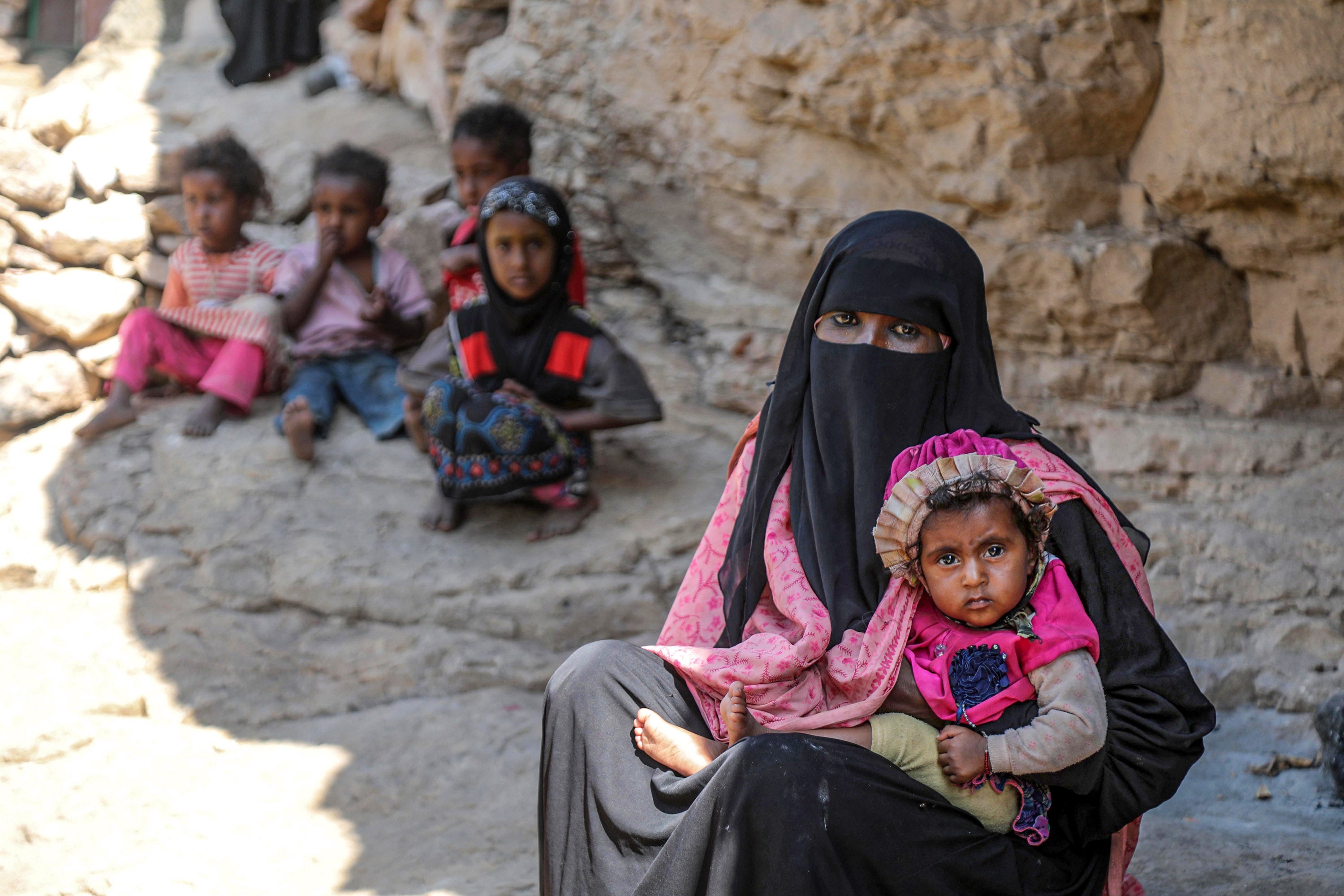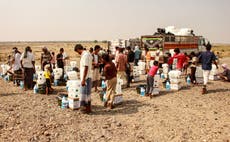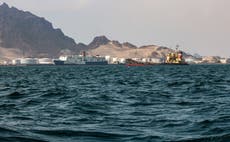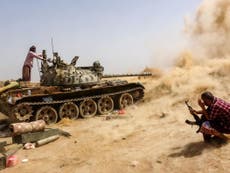UN highlights humanitarian threat to Yemen, as US officials prepare to suspend aid
Trump administration expected to label Houthi rebels operating in Yemen as a terrorist organisation

Your support helps us to tell the story
This election is still a dead heat, according to most polls. In a fight with such wafer-thin margins, we need reporters on the ground talking to the people Trump and Harris are courting. Your support allows us to keep sending journalists to the story.
The Independent is trusted by 27 million Americans from across the entire political spectrum every month. Unlike many other quality news outlets, we choose not to lock you out of our reporting and analysis with paywalls. But quality journalism must still be paid for.
Help us keep bring these critical stories to light. Your support makes all the difference.
The United Nations made an 11th-hour appeal to the Trump administration this week about the potential for humanitarian disaster in Yemen before an expected decision to name Houthi rebels there as a terrorist organisation and as US officials made preparations to potentially halt a $700 million (£522.3m) aid program for the country.
In a meeting with Secretary of State Mike Pompeo on Tuesday, David Beasley, executive director of the UN World Food Program, expressed his “grave concerns” about the potential impact of a decision to designate the Iranian-backed rebel group as a foreign terrorist organisation, which individuals familiar with the matter say Mr Pompeo could finalise as early as this week.
“I've got to have as much cover and flexibility as I can . . . in this complex working environment, where the Houthis control access to almost every single piece of territory,” Mr Beasley said in an interview.
In recent weeks, officials from the UN and aid groups have issued increasingly urgent warnings about the potential designation, saying it could worsen already-dire conditions in Yemen by reducing the amount of lifesaving aid and commercial imports moving into the country.
Five years of war between the Houthis, who function as Yemen's government in vast areas of the country, and a Saudi-backed military coalition have helped stoke disease, hunger and suffering, contributing to what has become the world's worst humanitarian crisis.
Now, the deteriorating situation among millions of Yemenis appears to be careening toward a collision with the Trump administration's desire to advance its hawkish Iran policy in its final days in office. Officials have already announced new sanctions on Tehran. Officials familiar with the discussions say Pompeo is expected, after a lengthy internal debate, to announce the decision on the terrorist designation for the Houthis, along with potential lesser steps to sanction the group.
If finalised, the move would subject individuals or groups who interact with the Houthis to financial sanctions and the potential for criminal prosecution unless they secure administrative exceptions from the US government.
Officials said it was not yet clear whether the administration would promptly issue waivers that would allow the US government officials, and the aid groups they fund, to continue their work. If they are not in place in time, all US and US-funded activities will be forced to halt immediately. Officials have prepared cease-and-desist letters in case.
A State Department spokesman declined to discuss potential designations.
A full halt to US aid activity, which has already been cut back this year, could have a devastating impact for Yemen. New UN data, which was obtained by The Washington Post before its release, showed that hunger is worsening in Yemen as pockets of Yemenis are experiencing famine-like conditions for the first time in several years. The number of people who fall in that category is expected to grow to 47,000 in the next six months.
Mr Beasley, a former South Carolina governor, said Mr Pompeo voiced concern about the circumstances of ordinary Yemenis and also about the activities of the Houthis.
Mr Beasley said he expressed the importance of securing waivers that would allow aid groups to continue their work. “I told him it's a bad situation and it's getting worse,” he said.
Aid workers say a terrorist designation for the Houthis could have a greater impact in disrupting aid and even commercial trade flows of food and medicine into Yemen because, unlike most other groups designated as terror organisations, the Houthis control an area that is home to 70 per cent of the population, including the capital and major sea- and airports.
Current and former officials have also warned that the move could have the unintended impact of deterring commercial shipping, insurance and trade companies from working in Yemen for fear of running afoul of US law. The waivers would not extend to non-US-funded aid work, leaving those groups in legal limbo.
Such designations have resulted in dramatic reductions to aid in the past, as occurred in Somalia with deadly effect more than a decade ago. Mr Beasley said the situation in Yemen was far more complex than in Somalia, because it is almost entirely dependent on food imports and because the Houthis control major infrastructure, a point he made to Mr Pompeo.
The United States this year cut back much of its aid to Houthi-controlled areas of Yemen because of rebel restrictions on humanitarian work. As a result of reduced funding from the United States and other nations, the UN has reduced its food rations to millions of Yemenis.
Senior officials from the United Nations Children Fund (UNICEF) have expressed their concern about the designation in recent conversations with State Department leaders. More than 12 million Yemeni children need humanitarian aid.
“UNICEF would be deeply concerned about any decisions that could compromise the safety of our teams and their efforts to assist vulnerable children and families,” Christopher Tidey, a UNICEF spokesman, said in an email.
The Houthis have received military support from Iran, including missiles and drones, US officials say, which they have used to attack Yemen's neighbour to the north, American ally Saudi Arabia.
Saudi Arabia meanwhile has been blamed for thousands of civilian deaths in Yemen in its air war against the Houthis. The United States, which used to conduct in-air refuelling for Saudi jets as part of the Yemen operation, has gradually scaled back its support for the coalition.
The Washington Post
Subscribe to Independent Premium to bookmark this article
Want to bookmark your favourite articles and stories to read or reference later? Start your Independent Premium subscription today.





Join our commenting forum
Join thought-provoking conversations, follow other Independent readers and see their replies
Comments